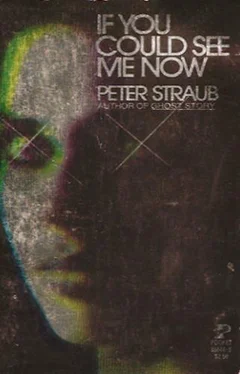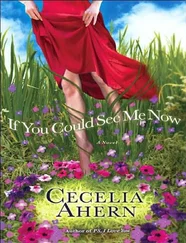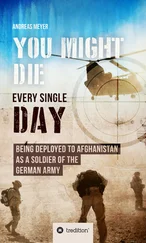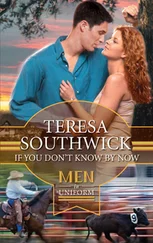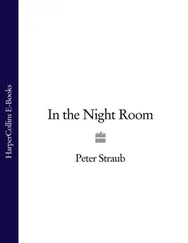That night I made an appeal to compassion, a second appeal to violence.
Finally I got the car started again.
As I sped down one of the Arden back streets I saw a familiar shape passing a lighted picture window, and I cut over to the curb and jumped out of the car before the motor was dead. I ran on the black asphalt in the middle of the road and crossed his lawn. I pressed Bertilsson’s bell.
When he opened his door I saw surprise alter his features. His face was as much a mask as hers. He ignored his wife’s calls of “Who is it? Who is it?” behind him.
“Well,” he said, grinning at me. “Come for my blessing? Or did you have something to confess?”
“I want you to take me in. I want you to protect me.”
His wife’s face appeared over his shoulder, at some hidden opening in their house, a corner or a door. She began to march forward.
“We’ve heard the distressing details of the Michalski girl’s death,” he said. “You have a nice sense of humor, Miles, coming here.”
I said, “Please take me in. I need your help.”
“I rather think my help is reserved for those who know how to use it.”
“I’m in danger. In danger of my life.”
His wife’s face glared at me now from over his shoulder. “What does he want? Tell him to go away.”
“I rather think he’s going to ask to be put up for the night.”
“Don’t you have a duty?” I asked.
“I have a duty to all Christians,” he said. “You are not a Christian. You are an abomination.”
“Tell him to go away.”
“I’m begging you.”
Mrs. Bertilsson’s head jerked upward, her face cold and hard. “You were too sick to take our advice when we saw you in town, and we’re under no obligation to help you now. Are you asking us to let you stay here?”
“Just for a night.”
“Do you think I could sleep with you in my house? Close the door, Elmer.”
“Wait—”
“An abomination.” He slammed the door. A second later I saw the drapes meeting; in the middle of the window.
Helpless. Helpless to help, helpless to be helped. This is the story of a man who couldn’t get arrested.
I drove to Main and stopped the car in the middle of the empty street. I honked the horn once, then twice. For a moment I rested my forehead on the rim of the steering wheel. Then I opened the door. I could hear the buzz of a neon sign, the momentary beating of wings far overhead. I stood beside the car. Nothing around me moved, nothing demonstrated life. All of the shops were dark; on either side of the street, cars pointed their noses at the curb like sleeping cattle. I shouted. Not even an echo answered. Even the two bars seemed deserted, although illuminated beer signs sparkled in their windows. I walked down the middle of the street toward Freebo’s. I felt drifting blue gather around me.
A stone the size of a potato was caught in the grid of a drain by the curbside. It might have been one they had thrown at me. I tugged it out and hefted it in my hand. Then I hurled it at Freebo’s long rectangular window. I remembered throwing glasses at the wall of my apartment, back in the passionate days of my marriage. There was an appalling noise, and glass shivered down onto the sidewalk.
And then everything was as it had been. I was still on the empty street; the shops were still light; no one was shouting, no one was running toward me. The only noise was the buzzing of the sign. I owed Freebo about fifty dollars, but I would never be able to pay him. I could smell dust and grass, the odors blown in on the wind from the fields. I imagined men inside the bar, backed away from the windows, holding their breath until I left. Inside with the scarred tables and the jukebox and the flashing beer signs, all waiting for me to leave. The last of the last chances.
On the morning of the twenty-first I woke up in the back seat of the car. I had been permitted to survive the night. Shouts, angry yells from Duane’s house up the path. His problems with his daughter seemed terrifically remote, someone’s else’s problem in someone else’s world. I leaned over the carseat and pulled the door release, pushed the seat forward, and got out. My back ached; I had a sharp, persistent pain behind my eyes. When I looked at my watch I saw that it was thirteen hours to dark: I would not run from it. I could not. The day, my last, was hot and cloudless. Sixty feet away, the chestnut mare leaned its head over the fence of the side field and regarded me with silky eyes. The air was very still, A big horsefly, greenly iridescent, began to bustle across the top of the car, concentrating on the bird droppings. Everything about me seemed a part of Alison’s coming, clues, sections of a puzzle which would lock into place before midnight.
I thought: if I get back into this car and try to drive off, she will stop me. Leaves and branches would block the windshield, vines would trap the accelerator. My visual sense of this was too powerful — for an instant I saw the homely interior of the VW choked with a struggling profusion of foliage, and I gagged on the spermy odor of sap — and I snatched my hand away from the top of the car.
I did not see how I could endure the tension of the intervening hours. Where would I be when she came?
With the desperate foolhardiness of a soldier who knows that the battle will come whether or not he is prepared for it, I decided what I would do at nightfall. Really, there was only one place for me to be when it happened. I had waited twenty years for it, and I knew where I would go to await the final moment, where I had to go, had to be when the noise of rushing wind came and the woods opened to release her for my own violent release. There were no more last chances.
Time passed. I moved dazedly around the house, at times wondering vaguely why Tula Sunderson had not appeared, and then remembering that I had fired her. I sat on the old furniture, and fell bodily into the past. My grandmother slid a pan into the oven, Oral Roberts declaimed from the radio, Duane slapped his hands together from a chair in a dark corner. He was twenty, and his hair swept upward from his forehead in a pompadour. Alison Greening, fourteen years old, magically vibrant, appeared in the doorway (man’s button-down shirt, fawn trousers, sexual promise making the air snap about her), and glided through on sneakered feet. My mother, hers, talked on the porch. Their voices were bored and peaceful. I saw Duane look at my cousin with a look of hatred.
Then I found myself in the bedroom with no memory of having climbed the stairs. I was staring at the bed. I remembered the feeling of breasts against my chest, first small, then cushiony, how I had fit myself into a ghost’s body. She was still moving downstairs; I heard her light footsteps crossing the living room, heard her slam the porch door.
You got into trouble again last year . My face had blazed. Summer’s lease is fading, dear one . I went across into my office and saw papers spilling out of bushel baskets. Do birds cough ? I saw only one conclusion. I was in check. Still, in memory, she glided downstairs. I felt as though absorbent cotton encased me, as though I were moving through treacle, thick dust…
I went back to the bedroom and sat in the chair which faced the bed. I had lost everything. My face felt mask-like, as if I could peel it off like Rinn’s balm. Even as I began to weep, I recognized that my features had become as blank and empty as her own, the night I had seen her gazing carelessly at me from this chair. She has entered me again, she is downstairs drinking Kool-Aid in the bubble of time that is 1955, she is waiting.
Some hours later, I am sitting at my desk and looking out the window when I hear Alison Updahl scream. A moment later, my senses awakening from their fog, I see her tearing down the path to the barn. In the back her shirt is ripped, as though someone had tried to swing her around by it, and it flaps as she pelts away. When she reaches the barn she does not stop, but races around the side and goes over a barbed wire fence to get into the back field and run in its declivities and grassy rises up toward the blanketing of woods on that side of the valley. These are the woods where Alison Greening and I, each carrying a shovel, had climbed to look for Indian mounds. When the Woodsman reaches a little rise and begins to run down into a hollow packed with massed yellow blossoms, she tears off the flapping T shirt and throws it behind her. I know at that second that she is crying.
Читать дальше
